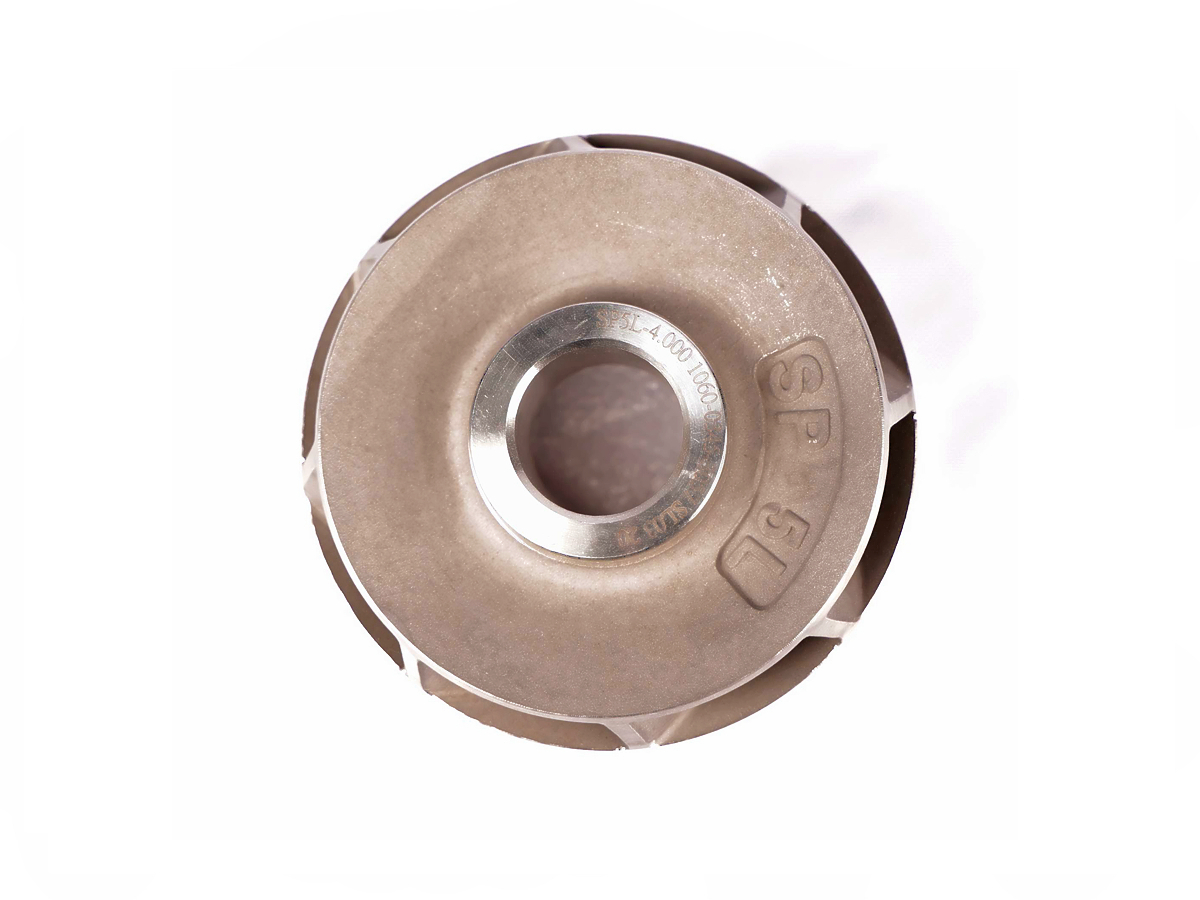Custom CNC Machining Solutions for Industrial Equipment Parts with Exacting Tolerances
Introduction to Custom CNC Machining for Industrial Equipment
Industrial equipment performance heavily depends on components manufactured to exact tolerances. Custom CNC machining solutions deliver precision components with tolerances as tight as ±0.005 mm and surface finishes finer than Ra 0.8 µm. This precision is crucial for critical equipment parts such as precision gears, shafts, housings, and valve assemblies, which are widely used in industrial equipment, automation, and robotics.
Leveraging advanced CNC machining services, manufacturers consistently achieve high accuracy, enhance operational reliability, and extend equipment lifespan, even under severe conditions involving mechanical stress, temperatures up to 600°C, and pressures reaching 500 bar.
Material Comparison for High-Precision Industrial Parts
Material Performance Comparison
Material | Tensile Strength (MPa) | Wear Resistance | Corrosion Resistance | Typical Applications | Advantage |
|---|---|---|---|---|---|
950-1100 | Excellent | Good | Gears, shafts, couplings | High strength, excellent fatigue resistance | |
515-620 | Very Good | Excellent | Valve components, precision fittings | Exceptional corrosion resistance | |
510-540 | Good | Excellent | Structural housings, precision brackets | High strength-to-weight ratio | |
360-400 | Good | Good | Precision connectors, fittings | Exceptional machinability, accurate dimensions |
Material Selection Strategy for High-Tolerance Parts
Selecting the appropriate material for precision CNC machined industrial equipment components involves a careful analysis of strength requirements, corrosion resistance, machinability, and operational conditions:
4140 Alloy Steel is optimal for heavily loaded gears and shafts, offering exceptional tensile strength (up to 1100 MPa), fatigue resistance, and robust wear characteristics.
Stainless Steel SUS304 provides outstanding corrosion resistance and good mechanical strength, ideal for precision fittings and valve components exposed to aggressive environments.
Aluminum 7075-T6 offers a superb balance of lightweight properties and high strength, ideal for structural housings, brackets, and lightweight precision parts requiring accurate dimensions.
Brass C360 excels in applications needing precise tolerances (±0.005 mm) and exceptional machinability, such as precision connectors, fittings, and complex small parts.
CNC Machining Process Analysis for Industrial Equipment Parts
CNC Machining Processes Performance Comparison
CNC Machining Technology | Dimensional Accuracy (mm) | Surface Roughness (Ra µm) | Typical Applications | Key Advantages |
|---|---|---|---|---|
±0.005-0.01 | 0.4-1.0 | Complex brackets, housings | Versatile geometry, high precision | |
±0.005-0.01 | 0.6-1.2 | Shafts, fittings, cylindrical components | High-volume efficiency, accuracy | |
±0.002-0.005 | 0.05-0.2 | Precision mating surfaces, bearings | Superior surface finishes, ultra-high precision | |
±0.003-0.008 | 0.2-0.8 | Intricate parts, complex assemblies | Enhanced accuracy, complex geometries |
CNC Machining Process Selection Strategy for Industrial Components
Choosing the right CNC machining processes ensures exact dimensional control and surface integrity critical for high-performance industrial equipment parts:
CNC Milling is ideal for machining intricate components such as complex housings and brackets, achieving precise geometry with tolerances as fine as ±0.005 mm.
CNC Turning is highly efficient for producing cylindrical components such as precision shafts, fittings, and connectors, ensuring consistent dimensional accuracy (±0.005-0.01 mm).
CNC Grinding is indispensable for critical components requiring extremely tight tolerances (±0.002-0.005 mm) and ultra-fine finishes (Ra ≤0.2 µm), particularly for precision bearings and sealing surfaces.
Multi-Axis CNC Machining is preferred for highly intricate parts and assemblies requiring detailed geometrical features, offering precision down to ±0.003 mm and enhanced production flexibility.
Surface Treatment Solutions for CNC Machined Industrial Equipment Parts
Surface Treatment Performance Comparison
Treatment Method | Wear Resistance | Corrosion Resistance | Max Operating Temp (°C) | Typical Applications | Key Features |
|---|---|---|---|---|---|
Excellent (up to HV 1100) | Excellent (~1200 hrs ASTM B117) | 550 | Gears, shafts, bearings | Enhanced surface hardness, fatigue strength | |
Excellent | Exceptional (~1000 hrs ASTM B117) | 400 | Valve fittings, connectors | Uniform coating, corrosion protection | |
Good | Outstanding (~1500 hrs ASTM B117) | 300 | Aluminum housings, brackets | Durable finish, superior corrosion resistance | |
Excellent | Outstanding (~1200 hrs ASTM B117) | 450 | Precision shafts, fittings | High surface hardness, reduced friction |
Surface Treatment Selection Strategy for Industrial Parts
Proper selection of surface treatments enhances wear resistance, extends part life, and maintains dimensional stability under demanding operational conditions:
Nitriding significantly enhances hardness (HV 1100) and fatigue resistance, ideal for critical gears, shafts, and bearing surfaces.
Electroless Nickel Plating ensures excellent corrosion resistance and uniform thickness, perfect for precision valve fittings and connectors.
Anodizing offers superior corrosion resistance and surface durability, well-suited for aluminum brackets and structural components.
Chrome Plating provides excellent wear resistance, hardness, and reduced friction, crucial for precision fittings and moving parts in machinery.
Typical Prototyping Method
CNC Machining Prototyping: Provides prototypes with highly accurate dimensions (±0.005 mm) and excellent surface finishes (Ra ≤0.8 µm), suitable for validating designs under realistic mechanical stresses.
Powder Bed Fusion: Enables complex metal prototypes with tolerances typically around ±0.1 mm, useful for performance evaluations before final production.
Material Jetting: Capable of achieving detailed geometrical accuracy with layer thicknesses as fine as 16-32 microns, valuable for early-stage design verification of intricate components.
Quality Control Standards for CNC Machined Industrial Parts
Precision dimensional inspection using Coordinate Measuring Machines (CMM).
Surface roughness evaluations via precision profilometers.
Non-destructive testing (ultrasonic, magnetic particle) to ensure component integrity.
Mechanical property testing according to ASTM and ISO standards.
Corrosion resistance testing under ASTM B117 standard.
Detailed documentation and complete traceability following ISO 9001 quality management standards.
Industry Applications of CNC Machined Industrial Equipment Parts
High-precision gear assemblies and drive components.
Hydraulic and pneumatic system components.
Valve assemblies and fluid management fittings.
Structural and housing parts for robotic and automated equipment.
Related FAQs:
Why is custom CNC machining crucial for industrial equipment parts?
What materials are optimal for high-tolerance CNC machining applications?
Which CNC machining processes are ideal for precise equipment components?
How do surface treatments improve the performance of industrial parts?
What quality standards are applied to CNC machined equipment components?

